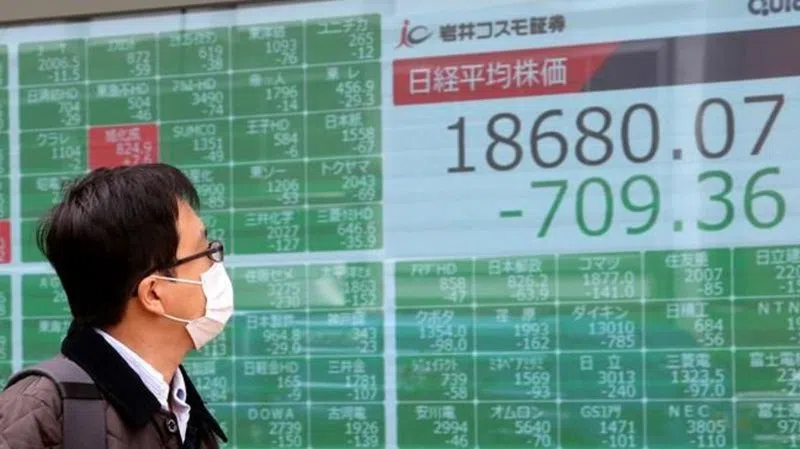
Asian shares extend losses as toll from pandemic surges
BANGKOK — Asian shares started the week with fresh losses as countries reported surging numbers of infections from the coronavirus that has prompted shutdowns of travel and business in many parts of the world.
Japan’s benchmark dropped almost 4% and other regional markets were mostly lower. Shares in Australia rose after the government promised more recession-fighting stimulus.
U.S. futures fell slightly more than 1% and oil prices also were lower.
Monday’s drop followed a decline of more than 3% on Wall Street on Friday despite hopes that a $2 trillion relief bill would ease the economic havoc brought by the pandemic. The S&P 500 still gained 10.3% last week, its biggest weekly win since 2009. The Dow Jones Industrial Average’s 12.8% weekly gain was its biggest since 1938. But the market is still down 25% from the peak it reached a month ago.
